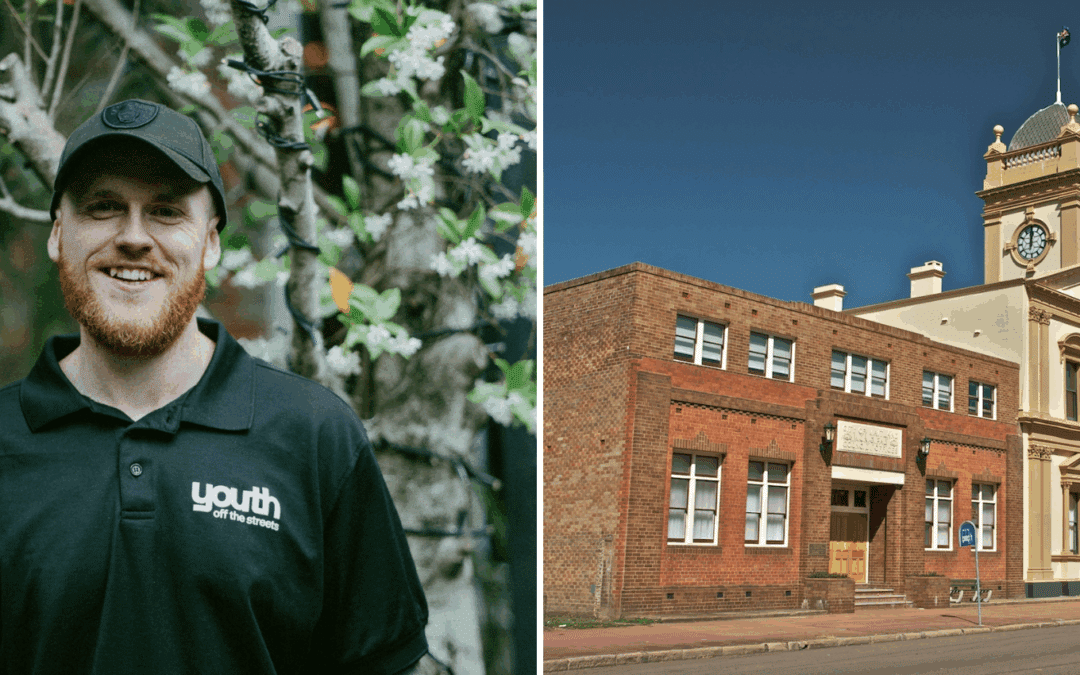As a 2023 Federal parliament report and recent media headlines have revealed, there has been a sharp increase in ‘school refusal’ since the COVID-19 lockdowns.
If you’re a parent, you may have first-hand experience of your child showing signs of emotional distress at the idea of attending school.
You’re not alone.
“School refusal is becoming more common in mainstream school settings,” says Sally Roseby, school psychologist at Youth Off The Streets’ EDEN College. “Complete school shutdowns during Covid have had an ongoing effect on young people.”
Sally has supported many students through periods of school refusal through her work at EDEN College.
“In my experience, it can be more likely to occur when there are transitions or inconsistency,” she explains.
“For example, coming back from school holidays can be challenging for some kids. Many struggle to return consistently.
“There can be a lot of distress and emotion involved, which can increase the reluctance to attend school.”
Youth Off The Streets School Principal Aaron McDonald says school refusal is different to truancy.
“It’s not a straightforward behavioral problem. Usually it’s related to some kind of mental health issue that’s making it almost impossible for the young person to come to school.”
It’s vital for carers and teachers to understand the contributing factors to school refusal and what’s really going on underneath the behaviour.
“It differs for every young person,” says Sally.
“Much of it can be rooted in anxiety. Not necessarily as a clinical diagnosis, although many of the young people we work with do have that. I mean anxiety symptoms – feeling tense, nervous in their stomach, vomiting because their body is feeling so anxious, as well as worries around what might or might not happen at school.”
Sally says these worries can be linked to many different things, such as potential social interactions.
“Maybe there’s some bullying or social isolation going on,” she states. “It can also be connected to their school performance – but we always need to dig deeper.
“Because of our experience working with at-risk young people, we also consider what’s happening in the young person’s life. We try to be curious and understand what they might be experiencing at home that might be intensifying their need to avoid school.”
Many young people Youth Off The Streets works with have experienced adversity in their lives, which is likely to have an impact on their mental health. Sally says supporting them to receive adequate mental health care will help improve their attendance in school – something our independent schools specialise in.
“Mental health is often a product of our experiences,” she explains. “It’s a piece of the puzzle that will help improve their functioning because their mental health impacts their ability to succeed in school.
“We link our students to appropriate services, such as the psychologist or counsellor on site, encourage conversations with GPs or get referrals to external supports. We want them to spend time with their friends in school, engaging in sport and doing what kids do.”
Many young people in mainstream school settings don’t receive this type of support. School Principal Aaron McDonald says that the wraparound approach at Youth Off The Streets’ independent schools is uncommon in school systems that focus on educational outcomes alone.
“We get to provide holistic education through wraparound services,” he explains. “Most schools don’t have a psychologist available every day and they certainly don’t have youth workers.
“Many of our school systems can’t provide that support due to a lack of funding or people. The solution is to make sure that we can care for every student.”
Anxious behaviour towards school might be entrenched in the young people that leave the mainstream system to enrol in Youth Off The Streets high schools. Our staff show understanding for this and develop strong relationships with the students.
“Many young people we work with don’t have a safe person to chat to, or they might struggle to have a consistent relationship with an adult,” explains Sally.
“Our role here is to form safe and consistent relationships with young people. From there, we can gently explore what’s going on in their life that might lead to school refusal.
“Sometimes this relationship is enough for the young person to attend school more regularly because they feel safe and like they belong.”
Once staff get to the root of the issue, they can develop targeted strategies to support young people in attending school.
“These strategies could be targeted intervention through mental health support or even just conversations around relaxation and managing their worries,” says Sally.
“There could be barriers like the young person not feeling safe catching the train or their mum not being able to drive. If we don’t talk about this, we can’t provide solutions or adjustments to make it easier for them to get to school.
“We can’t treat the issue simplistically. Long-term change requires a caring and consistent response that will set them up for adulthood. We must be persistent and realistic. It also involves supporting their parents and carers, because school refusal can be tough for everyone,” says Sally.
Aaron clarifies that while parents are often doing their best to help their child, they sometimes need professional support.
“Our parents often are doing all they can to get them to school,” he explains. “But even parents aren’t always equipped to deal with it. They aren’t trained psychologists, counselors, youth workers or mental health physicians.”
Working together with families is key to addressing the issue, in and out of the home.
“We discuss the solutions together because the longer and more regularly young people are at school, the better their future outcomes will be,” says Sally.
She explains this is particularly true for young people exposed to trauma and adversity.
“Our goal is to offer them a safe and consistent place where they can continue to develop and take hold of the opportunity to be exposed to their peers. School doesn’t just offer an education – young people develop social and other essential skills for adulthood.
“When kids aren’t at school, they’re not exposed to many of the developmental milestones they need. We need to help them to stay in school while giving them access to mental health support. If we can do that, we could see a completely different trajectory for their futures.”
“The core of it is we need to care more about young people,” says Aaron.
“And habits that form in primary school are essential to their continued education. The government must ensure that schools are equipped to tackle it early – and have the staff and mental health support services available to do that.”
You can read about Youth Off The Streets’ independent and alternative high schools here.



